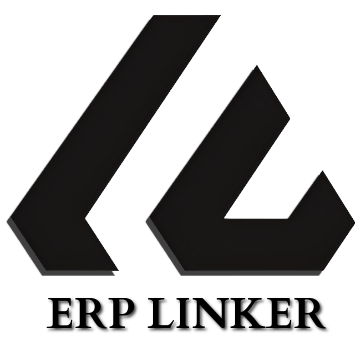Integrating WooCommerce with ERP systems has the power to transform business operations by automating order management, inventory, and customer data sync. Yet, many businesses discover that off-the-shelf WooCommerce ERP plugins fall short, resulting in frustration, data inconsistencies, and operational headaches. Understanding why these failures occur—and knowing how to select the right integration partner—can mean the difference between seamless growth and avoidable roadblocks.
Common Reasons WooCommerce ERP Plugins Fail
1. One-Way or Limited Synchronization
Many plugins only offer basic, one-way data sync—either from WooCommerce to ERP or vice versa. As soon as updates roll out on either side, these weak integrations break, causing order losses or outdated stock data.
2. Data Mapping Incompatibilities
WooCommerce and ERP systems have different data structures. Generic plugins often lack advanced mapping for SKUs, product variants, and custom attributes. This leads to misaligned records, missing orders, or incorrect inventory counts.
3. Plugin & Theme Conflicts
WooCommerce sites run on a variety of plugins and custom themes. Inflexible ERP plugins can easily clash with other extensions, causing instability, breaking site layouts, or even crashing stores.
4. Lack of Support for Advanced Scenarios
Businesses with multiple warehouses, B2B pricing, partial shipments, or custom workflows quickly outgrow standard plugins. The inability to handle real-world operational logic is a common failure point.
5. Poor Error Handling and Real-Time Sync
Batch syncing or delayed updates mean your store can oversell inventory, frustrating customers. The absence of real-time sync and alert mechanisms results in data discrepancies that are hard to trace and fix.
6. Limited Customization Options
Off-the-shelf solutions rarely support unique workflows or custom fields. For businesses with specialized processes, these plugins can block—not enable—operational efficiency.
7. Security and Compliance Gaps
Plugins that neglect secure APIs, data encryption, or compliance best practices create unnecessary risk. Data breaches or regulatory non-compliance can have severe consequences.
8. ERP System Limitations
Even with a capable plugin, if the underlying ERP has weak APIs or doesn’t support webhook/event-based updates, the integration will feel clunky and unreliable.
How to Choose the Best WooCommerce ERP Integration
Selecting the right integration tool—or partner—is key to sustainable e-commerce automation. Here’s what you should look for:
- Two-Way, Real-Time Sync:
Ensure the solution supports bi-directional, live updates for orders, inventory, and customer data to prevent errors and overselling. - Flexible Data Mapping:
Select tools or partners that allow deep mapping of product types, variants, custom fields, and complex pricing rules. - Customization & Extensibility:
Prefer solutions that can be tailored to your business’s unique needs, including advanced logic for multi-location inventory or B2B workflows. - Robust Error Handling:
Look for integrations with detailed logs, automated error notifications, and clear status dashboards. - Comprehensive Security:
APIs must be secure, regularly audited, and compliant with industry standards on data protection. - Proven Support & Documentation:
Choose a vendor with a proven track record, responsive support, and thorough documentation.
The ERP Linker Advantage: Custom ERP Integration
While generic plugins serve basic needs, ambitious businesses need solutions built for their unique processes. ERP Linker specializes in custom WooCommerce ERP integrations designed to:
- Seamlessly connect WooCommerce with your ERP, accounting for all custom fields, workflows, and advanced logic.
- Deliver real-time, two-way synchronization—orders, inventory, customer data—without fear of data loss or system conflicts.
- Adapt to changes in your business or tech environment, with scalable, future-proof solutions.
- Provide clear error tracking, audit trails, and ongoing support from experienced ERP and e-commerce specialists.
With ERP Linker, you’re not just adopting another tool—you’re gaining a true technology partner committed to understanding and integrating your business’s DNA. Our experts design, implement, and support integrations that ensure your WooCommerce store and ERP system work in perfect harmony, accelerating your growth and reducing operational risk.
Summary Table: Common Failure Points & ERP Linker Solution
| Failure Point | Standard Plugins | ERP Linker Custom Integration |
|---|---|---|
| Two-way, real-time sync | Often missing or unreliable | Always included, real-time |
| Flexible data mapping | Limited | Deep mapping, custom logic |
| Advanced workflow support | Weak or missing | Fully tailored, any scenario |
| Error handling | Minimal logs, poor alerts | Detailed logging, proactive notifications |
| Ongoing compatibility | Frequent breakage | Proactively maintained, version-proofed |
| Security | Varies, often weak | Secure APIs, full compliance |
| Support | Basic, slow | Dedicated, responsive experts |
Conclusion
Most WooCommerce ERP plugins fail because they are too generic, inflexible, and lack critical features needed by modern businesses. Choosing a deeply customizable integration—like those delivered by ERP Linker—not only resolves these limitations but turns your WooCommerce store and ERP system into a synchronized engine for growth and efficiency. Don’t settle for patchwork plugins. Partner for integration that scales with your business and future vision.

